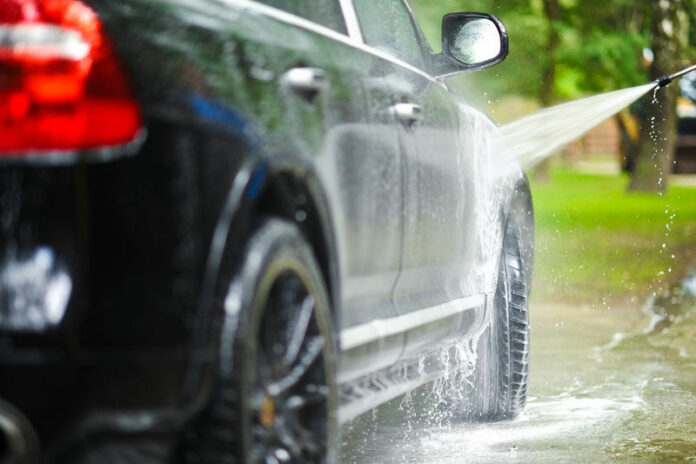One of Murphy’s Laws is that you can’t get something clean without getting something else dirty. Depending on how you wash your car, you may be trading a dirty car for a polluted creek because the water that flows into our storm drains does not get treated, it flows directly into our creeks.
When we wash our cars in our driveways, the oil, automotive fluids, and other pollutants that have accumulated on our cars hitch a ride in the rinse water, which typically flows, into street gutters, then right into our creeks. Eventually, those pollutants reach the Russian River.
The power of one, multiplied
If you’re thinking that you, washing your one car, couldn’t possibly hurt the fish and other life in our waterways, you’re probably right. But as the warm weather gets here, it won’t be just you making your ride gleam; lots of people will be washing their cars by hand right along with you.
The good news is that there are things you can do to reduce the environmental impact that washing your car has on our creeks and the Russian River. If you are able to wash your car on an unpaved part of your yard, do that instead of washing it in the driveway or street. When you wash your car on your lawn or other unpaved area, the pollutants you rinse off your car will percolate into the soil. The soil, gravel, and vegetation act as filters for the soap and grime.
Take a break
Another way to protect the water quality of our streams is to have your car washed at a commercial car washing facility. Most commercial car wash facilities filter rinse water and direct it to the sanitary sewer where it gets treated and either reused (recycled water) or released into waterways during certain winter periods. Take a break from washing your car yourself and give our creeks a break too.
Fundraiser car washes
A community car wash is a traditional way to earn money for scouts, schools, or sports programs. Unfortunately, it also puts a lot of automotive fluids and soap into storm drains (and eventually creeks) all at once, concentrating the pollutants in one location. If you are a holding a community car wash on a paved area, plan to block the storm drains receiving the rinse water and pump the accumulated rinse water into a sanitary sewer inlet, or direct the water to a landscaped area where it can soak in. Before planning a fund raising car wash, please call your local municipality for the latest requirements and guidelines. You can get more detailed information by going to the following web links: www.sonoma-county.org/prmd/sw/pp-home-carwash.htm or cityofukiah.com/pageserver/?page=stormwater_auto.
With a little effort, we can each keep our cars gleaming while protecting our creeks. Clean cars don’t have to mean dirty creeks.
Written by Cristina Goulart of the Town of Windsor on behalf of RRWA. RRWA (www.rrwatershed.org) is an association of local public agencies in the Russian River Watershed that have come together to coordinate regional programs for clean water, fisheries restoration, and watershed enhancement.
69.5
F
Healdsburg
April 20, 2025








